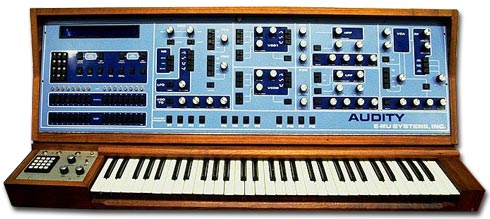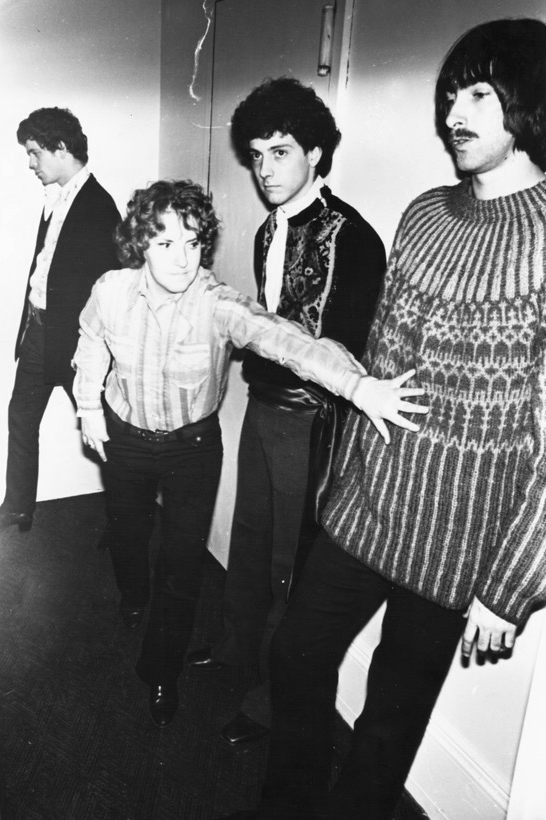|
Low (David Bowie Album)
''Low'' is the eleventh studio album by the English musician David Bowie, released on 14 January 1977 through RCA Records. After years of drug addiction when living in Los Angeles, Bowie moved to France in 1976 with his friend Iggy Pop to sober up. There, Bowie produced and co-wrote Pop's debut studio album, ''The Idiot'', featuring sounds Bowie would explore on his next record. After completing ''The Idiot'', Bowie began recording the first of three collaborations that became known as the Berlin Trilogy with American producer Tony Visconti and English musician Brian Eno. Sessions began at Hérouville's Château d'Hérouville in September 1976 and ended in October at Hansa Studios in West Berlin, where Bowie and Pop had relocated. Grounded in art rock and experimental rock and influenced by German bands such as Tangerine Dream, Neu!, Harmonia and Kraftwerk, ''Low'' features Bowie's first explorations in electronic and ambient styles. Side one consists primarily of short ... [...More Info...] [...Related Items...] OR: [Wikipedia] [Google] [Baidu] |
David Bowie
David Robert Jones (8 January 194710 January 2016), known professionally as David Bowie ( ), was an English singer-songwriter and actor. A leading figure in the music industry, he is regarded as one of the most influential musicians of the 20th century. Bowie was acclaimed by critics and musicians, particularly for his innovative work during the 1970s. His career was marked by reinvention and visual presentation, and his music and stagecraft had a significant impact on popular music. Bowie developed an interest in music from an early age. He studied art, music and design before embarking on a professional career as a musician in 1963. "Space Oddity", released in 1969, was his first top-five entry on the UK Singles Chart. After a period of experimentation, he re-emerged in 1972 during the glam rock era with his flamboyant and androgynous alter ego Ziggy Stardust (character), Ziggy Stardust. The character was spearheaded by the success of Bowie's single "Starman (song), Starma ... [...More Info...] [...Related Items...] OR: [Wikipedia] [Google] [Baidu] |
Speed Of Life (David Bowie Song)
"Speed of Life" is the first instrumental by David Bowie. It is the opening track for his album '' Low'' from 1977. "Speed of Life" introduces the ''Low'' album, and, coupled with the instrumental "A New Career in a New Town", provides a front bookend for the A-side of the album. The track makes several immediate implications about the content of the album, with its heavy use of synthesizers as both effects and instruments, with the presence of Dennis Davis' drums and the overlaid harmonizer creating a distinctly different mix than any previous Bowie album. The song includes the refrain from Here Comes That Rainy Day Feeling Again. Lyrics were originally planned for this song, but Bowie abandoned the idea after several attempts, deciding that the piece stood better on its own. Live versions * Performances from the Isolar II Tour have been released on ''Stage'' (1978) and '' Welcome to the Blackout'' (2018). The song was also performed during the 2002 tour, in which Bowie pl ... [...More Info...] [...Related Items...] OR: [Wikipedia] [Google] [Baidu] |
Ambient Music
Ambient music is a genre of music that emphasizes tone and atmosphere over traditional musical structure or rhythm. It may lack net composition, beat, or structured melody.The Ambient Century by Mark Prendergast, Bloomsbury, London, 2003. It uses textural layers of sound that can reward both passive and active listening and encourage a sense of calm or contemplation. The genre is said to evoke an "atmospheric", "visual",Prendergast, M. ''The Ambient Century''. 2001. Bloomsbury, USA or "unobtrusive" quality. Nature soundscapes may be included, and the sounds of acoustic instruments such as the piano, strings and flute may be emulated through a synthesizer. The genre originated in the 1960s and 1970s, when new musical instruments were being introduced to a wider market, such as the synthesizer. It was presaged by Erik Satie's furniture music and styles such as musique concrète, minimal music, and German electronic music, but was prominently named and popularized by British mu ... [...More Info...] [...Related Items...] OR: [Wikipedia] [Google] [Baidu] |
Kraftwerk
Kraftwerk (, "power station") is a German band formed in Düsseldorf in 1970 by Ralf Hütter and Florian Schneider. Widely considered innovators and pioneers of electronic music, Kraftwerk were among the first successful acts to popularize the genre. The group began as part of West Germany's experimental krautrock scene in the early 1970s before fully embracing electronic instrumentation, including synthesizers, drum machines, and vocoders. Wolfgang Flür joined the band in 1974 and Karl Bartos in 1975, expanding the band to a quartet. On commercially successful albums such as ''Autobahn'' (1974), '' Trans-Europe Express'' (1977), ''The Man-Machine'' (1978), and ''Computer World'' (1981), Kraftwerk developed a self-described "robot pop" style that combined electronic music with pop melodies, sparse arrangements, and repetitive rhythms, while adopting a stylized image including matching suits. Following the release of '' Electric Café'' (1986), Flür left the group in 1987, f ... [...More Info...] [...Related Items...] OR: [Wikipedia] [Google] [Baidu] |
Harmonia (band)
Harmonia was a West German musical "supergroup" formed in 1973 as a collaboration between members of two prominent krautrock bands: Cluster's Hans-Joachim Roedelius and Dieter Moebius joined by Neu! guitarist Michael Rother. Living and recording in the rural village of Forst, the trio released two albums—''Musik von Harmonia'' (1974) and '' Deluxe'' (1975)—to limited sales before dissolving in 1976. In 1997, a series of shelved 1976 collaborations between Harmonia and British musician Brian Eno saw release as ''Tracks and Traces''; it was reissued with more unearthed material in 2009. Following the release of the live album ''Live 1974'' (2007), the trio reformed between 2007 and 2009. In 2015, Grönland Records released the 6-disc box set ''Complete Works'', featuring remastered recordings and archival material. AllMusic described the group as "one of the most legendary in the entire krautrock/kosmische scene." Collaborator Brian Eno described them in the mid-1970s as "the w ... [...More Info...] [...Related Items...] OR: [Wikipedia] [Google] [Baidu] |
Neu!
Neu! (; German for "New!"; styled in block capitals) were a West German krautrock band formed in Düsseldorf in 1971 by Klaus Dinger and Michael Rother following their departure from Kraftwerk. The group's albums were produced by Conny Plank, who has been regarded as the group's "hidden member". They released three albums in their initial incarnation—''Neu!'' (1972), ''Neu! 2'' (1973), and ''Neu! 75'' (1975)—before disbanding in 1975. They briefly reunited in the mid-1980s. Though Neu! had minimal commercial success during their existence, the band are retrospectively considered a central act of West Germany's 1970s krautrock movement. They are known for pioneering the "motorik" beat, a minimalist 4/4 rhythm associated with krautrock artists. Their work has exerted a widespread influence on genres such as electronica and punk. History 1970–1971: Pre-formation Neu! was formed in 1971 in Düsseldorf as an offshoot from an early line-up of another seminal krautrock band, ... [...More Info...] [...Related Items...] OR: [Wikipedia] [Google] [Baidu] |
Tangerine Dream
Tangerine Dream is a German electronic music band founded in 1967 by Edgar Froese. The group has seen many personnel changes over the years, with Froese having been the only constant member until his death in January 2015. The best-known lineup of the group was its mid-1970s trio of Froese, Christopher Franke, and Peter Baumann. In 1979, Johannes Schmoelling replaced Baumann. Since Froese's death in 2015, the group has been under the leadership of Thorsten Quaeschning (Froese's chosen successor and the current longest-serving band member, having joined in 2005). He was joined by violinist Hoshiko Yamane in 2011, Ulrich Schnauss in 2014 and Paul Frick in 2020. Tangerine Dream are considered a pioneering act in electronica. Their work with the electronic music Ohr label produced albums that had a pivotal role in the development of the German musical scene known as kosmische Musik ("cosmic music"). Their "Virgin Years", so called because of their association with Virgin Recor ... [...More Info...] [...Related Items...] OR: [Wikipedia] [Google] [Baidu] |
Krautrock
Krautrock (also called , German for ) is a broad genre of experimental rock Experimental rock, also called avant-rock, is a subgenre of rock music that pushes the boundaries of common composition and performance technique or which experiments with the basic elements of the genre. Artists aim to liberate and innovate, with ... that developed in West Germany in the late 1960s and early 1970s among artists who blended elements of psychedelic rock, avant-garde music, avant-garde composition, and electronic music, among other eclectic sources. These artists incorporated hypnotic rhythms, extended musical improvisation, improvisation, musique concrète techniques, and early synthesizers, while generally moving away from the rhythm & blues roots and song structure found in traditional Anglo-American rock music. Prominent groups associated with the krautrock label included Neu!, Can (band), Can, Faust (band), Faust, Tangerine Dream, Kraftwerk, Cluster (band), Cluster, Ash Ra Tempel, Pop ... [...More Info...] [...Related Items...] OR: [Wikipedia] [Google] [Baidu] |
Art Rock
Art rock is a subgenre of rock music that generally reflects a challenging or avant-garde approach to rock, or which makes use of modernist, experimental, or unconventional elements. Art rock aspires to elevate rock from entertainment to an artistic statement, opting for a more experimental and conceptual outlook on music."Art Rock" Encyclopædia Britannica. Retrieved 15 December 2011. Influences may be drawn from genres such as , avant-garde music, |
Brian Eno
Brian Peter George St John le Baptiste de la Salle Eno (; born Brian Peter George Eno, 15 May 1948) is a British musician, composer, record producer and visual artist best known for his contributions to ambient music and work in rock, pop and electronica. A self-described "non-musician", Eno has helped introduce unconventional concepts and approaches to contemporary music. He has been described as one of popular music's most influential and innovative figures. Born in Suffolk, Eno studied painting and experimental music at the art school of Ipswich Civic College in the mid 1960s, and then at Winchester School of Art. He joined glam rock group Roxy Music as its synthesiser player in 1971, recording two albums with the group before departing in 1973. Eno then released a number of solo pop albums beginning with ''Here Come the Warm Jets'' (1974) and, also in the mid-1970s, began exploring a minimalist direction on influential recordings such as '' Discreet Music'' (1975) and ... [...More Info...] [...Related Items...] OR: [Wikipedia] [Google] [Baidu] |
Berlin Trilogy
The Berlin Trilogy consists of three studio albums by English musician David Bowie: '' Low'', '' "Heroes"'' (both 1977) and '' Lodger'' (1979). The trilogy originated following Bowie's move from Los Angeles, California, to Europe to rid himself of worsening drug addiction. Influences included krautrock, the German music genre, and the recent ambient releases of English musician Brian Eno. After cancelling a proposed soundtrack album for ''The Man Who Fell to Earth'' (in which he starred), Bowie embarked on the Isolar tour and then moved to Europe. Before work began on the trilogy, Bowie co-wrote and produced Iggy Pop's debut solo album ''The Idiot'', which features a sound similar to that which Bowie would explore in the trilogy. He also collaborated with Pop for his second solo album '' Lust for Life'' before recording ''"Heroes"''. Both albums were released in 1977. Bowie recorded the trilogy in collaboration with Eno and American producer Tony Visconti. The albums featured ... [...More Info...] [...Related Items...] OR: [Wikipedia] [Google] [Baidu] |
The Idiot (album)
''The Idiot'' is the debut studio album by American musician Iggy Pop, released on March 18, 1977, through RCA Records. After the break-up of his band the Stooges in 1974, Pop struggled with drug addiction. Although attempts to get sober proved unsuccessful, by 1976, he was ready to end his addiction. Pop accepted an invitation to accompany his friend David Bowie on his Isolar Tour. At the end of the tour, Pop agreed to join Bowie, also struggling with drug addiction, in moving to Europe to rid themselves of their addictions. The two settled into the Château d'Hérouville in Hérouville, where Bowie agreed to produce an album for Pop. Described by Pop as "a cross between James Brown and Kraftwerk", ''The Idiot'' marks a departure from the proto-punk of the Stooges to a more subdued, mechanical sound with electronic overtones. Recording for it began at the château in June 1976 and continued into July. Further sessions took place at Musicland Studios in Munich in August. ... [...More Info...] [...Related Items...] OR: [Wikipedia] [Google] [Baidu] |

.png)
.jpg)
_South_To_Porta_West_Falica_(RLH).jpg)

.jpg)


